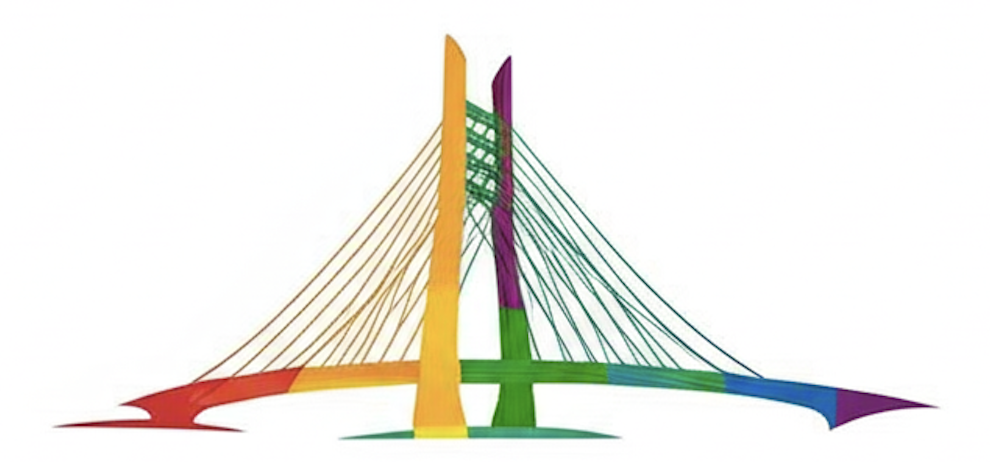So, What Exactly IS a "Third Culture Kid"?
More than just passport stamps. It's a mindset, a superpower, and maybe... it's you.
The Textbook Version (The OG TCK)
Alright, let's get the "official" stuff out of the way. The term "Third Culture Kid" (TCK) was coined by sociologists Dr. Ruth Hill Useem and Dr. John Useem back in the 1950s. They, along with David C. Pollock and Ruth E. Van Reken (authors of the TCK bible, "Third Culture Kids: Growing Up Among Worlds"), defined a TCK as "a person who has spent a significant part of his or her developmental years outside the parents’ culture."
In plain English? These are kids who grew up in a culture different from their parents' home country (or countries). They build relationships to all the cultures they've lived in, but don't feel a complete sense of ownership in any single one. Instead, they form a unique "third culture" – a blend of their experiences. Think diplomat kids, missionary kids, international business brats, military kids posted abroad. They’re global nomads from way back.
But Wait, There’s More... (Because Life Isn't a Textbook)
Now, that classic definition is solid gold. It gave a name to a powerful, often invisible experience. But here’s the thing: the essence of that TCK journey – navigating multiple cultural norms, feeling like an insider/outsider, developing a complex worldview – isn't just for those who grew up with a well-stamped passport. The TCK experience can be born from more than just geography.
The Modern TCK: It Could Be You.
Ever feel like you're operating with a richer, more complex cultural map than those around you? You might be a modern TCK. These experiences create that same "in-between" identity:
- First or Second-Gen Trailblazer: Raised by immigrant parents, constantly bridging their homeland's vibrant culture with the mainstream North American current? You're a TCK, living that dual-world reality.
- Indigenous Bridge-Builder: Navigating your Nation’s rich heritage, language, and ways of being alongside the dominant culture, often code-switching just to get through the day? That’s a profound TCK journey.
- Mixed-Heritage Maven: Got a beautiful mosaic of ethnicities or cultural backgrounds? You’re inherently a connector, seeing the world through multiple lenses. Prime TCK territory.
- The Cross-Continental Chameleon: Did your life involve significant moves across vastly different regions of Canada or the U.S.? The cultural shifts between, say, Quebec and British Columbia, or rural Appalachia and urban California, are deeply formative, forcing constant adaptation and observation.
The New Frontier: The Digital TCK
There's another, more recent version of this experience, not defined by geography, but by a massive technological and cultural chasm. If you were born after 1990, you grew up in a world your parents could barely imagine—a world shaped by the internet, social media, and now, AI.
- The Generational Bridge-Builder (or "Digital TCK"): You are fluent in the norms, language, and speed of the digital world, while your parents and older colleagues are "immigrants" to it. You constantly translate between online and offline realities, you "code-switch" your communication styles, and you intuitively navigate systems that are foreign to previous generations. The cultural dissonance between your digitally-native world and the analog world of your upbringing is just as real and formative as any border crossing.
If any of this resonates, you've honed the core TCK toolkit: fierce adaptability, profound empathy (you had to develop it), and an almost uncanny ability to see patterns and perspectives others miss. The challenge? Sometimes feeling like you don't fully belong anywhere. The superpower? That's precisely what makes your leadership invaluable.
Sound Familiar? The TCK Edge
Whether your map has international borders, distinct provincial lines, or a digital divide, these "in-between" experiences forge some pretty kick-ass strengths. We're talking:
- Warp-Speed Adaptability & Resilience: You’ve learned to land on your feet in new environments more times than a cat. Change isn't just tolerated; it's often your comfort zone.
- An Expanded Worldview & Next-Level Empathy: You don't just know there are different ways of seeing the world; you've lived it. This makes you a natural at understanding diverse perspectives.
- Ninja-Level Cross-Cultural Communication: You're often a master of reading subtext, navigating unspoken rules, and translating between different communication styles.
- Sherlock Holmes-esque Observational Prowess: You’ve had to become a keen observer of human behavior and cultural nuances to survive and thrive.
- Innate Bridge-Building Instincts: You naturally see connections and common ground where others see divides. You’re wired to connect.
- (Often) A Wicked, Well-Traveled Sense of Humor: Because sometimes, you just gotta laugh at the absurdity of it all, right?
These aren't just personality quirks, my friend. These are highly valuable, often underestimated, leadership assets.
Why All This "TCK Talk" Matters (Especially If You're Leading Stuff)
So you're a TCK—classic, modern, or digital. Big deal? Hell yeah, it is. Your ability to see from multiple perspectives, adapt to change, and connect with diverse groups is leadership gold in today's complex world. But let's be real: that same "chameleon" skill can sometimes leave you feeling a bit rootless, like you're constantly code-switching your soul, or that your unique insights get lost in translation.
Understanding your TCK identity isn't about dwelling on the past; it's about unlocking the full power of your present and future leadership. It's about owning your unique genius—forged between worlds, whatever those worlds may be—and learning how to build bridges so effectively that people don't just cross them; they ask you how you built them. That's where I come in.
Ready to Own Your TCK Genius?
If this page made you go "Holy crap, that's ME!" then your journey of leveraging that incredible TCK edge is just beginning. Let's talk.
Explore Coaching with Rehman →